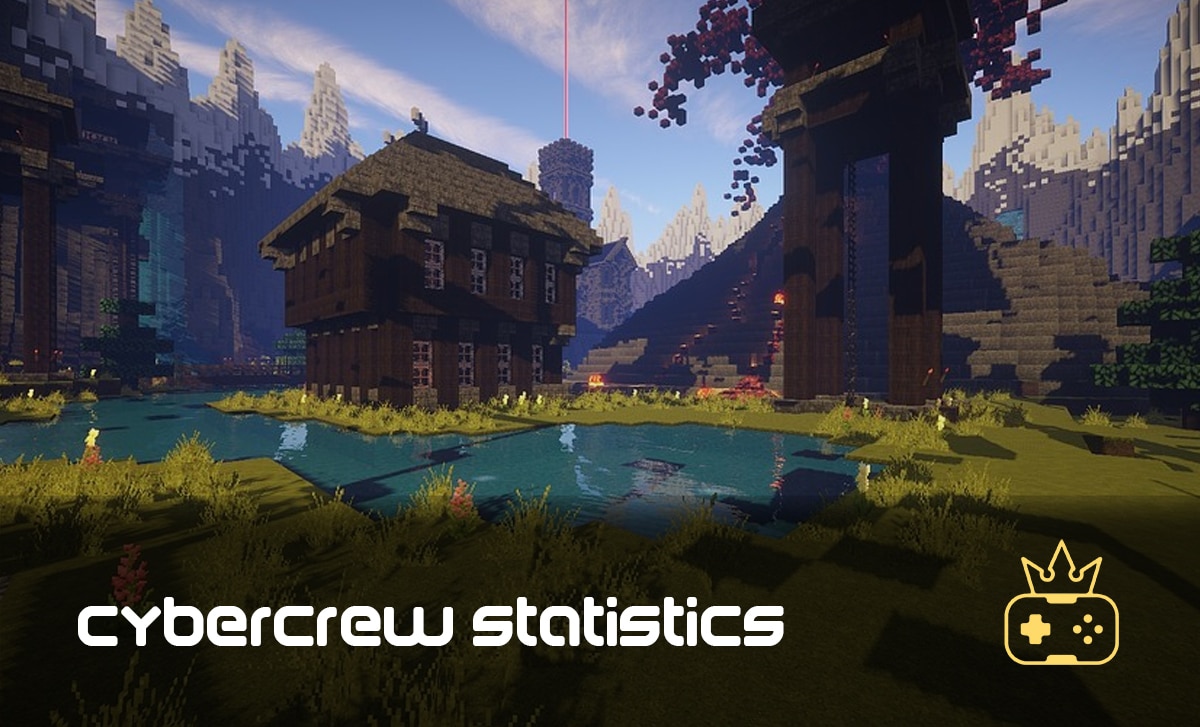Curious Artificial Intelligence Statistics UK [2024]
Last Updated: February 9, 2024
Artificial intelligence is one of the most significant emerging trends in the UK. Artificial intelligence has been witnessing a period of strong growth as developments in technology make it viable for various kinds of commercial use.
The artificial intelligence sector in the UK was worth 15.6 billion pounds in 2020, and this number is expected to keep growing. So what will the future of work look like once artificial intelligence reaches the mainstream? How much of an impact is artificial intelligence having on UK society? These artificial intelligence growth statistics will try to provide the answers.
Here are the latest artificial intelligence statistics UK and artificial intelligence facts to render insight into the world of artificial intelligence.
Fascinating Facts
- 61% of UK artificial intelligence startups are located in London.
- The UK has an AI adoption rate of more than 20%.
- 26% of UK citizens said that they trusted AI to provide correct information.
- AI startups have raised 19.6 billion pounds between 2011 and2021.
- The number of companies engaged in AI in the UK has grown 145%.
- Just 22% of the people working on artificial intelligence in the UK are women.
- 45% of UK artificial intelligence startups have at least one female co-founder.
- The UK economy could grow 10.3% by 2030 solely as a result of the AI sector.
- The UK is one of the top 5 AI-powered chatbot-using countries in the world.
- 74% of artificial intelligence startups in the UK have secured equity fundraising.
Artificial Intelligence Statistics UK
In terms of Artificial Intelligence readiness, the UK government was ranked second in the world in 2019
The Government Artificial Intelligence Readiness Index 2019 measured the readiness and ability of governments around the world to adapt to AI technology. The UK was ranked second in the world with a score of 9.069, just behind Singapore. The top 20 countries in this ranking mainly consisted of developed Western nations. There were no countries from Africa or Latin America on the list.
According to the Global AI Adoption Index 2021, the UK has an AI adoption rate of more than 20%
The Global AI Adoption Index 2021 was researched and published by IBM to report how fast countries worldwide are adopting AI. Approximately 32% of businesses in the UK said that they are not using any AI as part of their operations, nor they plan to do so. This figure is among the highest, compared to other European countries.
26% of citizens surveyed in the UK said that they trusted AI to provide correct information
Trust is an important factor when it comes to AI adoption, however, people are yet to start trusting AI solutions. According to KPMG’s study with more than 2000 UK citizens, 35% of the people were unwilling to rely on information provided by an AI. This number is similar in other countries such as the US, Canada, Germany, and Australia.
In the UK, artificial intelligence startups have raised 19.6 billion pounds between 2011 to 2021
Since 2011, the artificial intelligence sector has been consistently performing well in the UK. There are more than 1400 high-growth startups that are primarily dealing with or developing AI solutions. Companies in the artificial intelligence sector span industries as varied as healthcare, finance, and data security. The leading application of AI has been in the software sector.
61% of artificial intelligence startups are located in London
Artificial intelligence requires highly skilled talent, which may be a possible reason why AI startups in the UK are disproportionately located in London. The other urban sectors with a high concentration of AI startups are Reading, Cambridge, and Manchester.
UK AI startups employ more than 20,000 people and have generated more than 1 billion pounds in revenue
The overall artificial intelligence sector is still in its nascent stages. This is evident from the fact that approximately 20% of the companies only employ a single person. Around 3% of the companies have more than 250 employees. It’s clear that the leading companies in the AI sector are employing the most amount of human capital, similar to other sectors.
The number of companies engaged in AI in the UK has grown 145% between 2010 and 2020
In 2010, there were approximately 1070 artificial intelligence companies in the UK, while in 2018, there were more than 2500. The sector’s overall value has more than doubled during the same period, showing how quickly the sector has been growing in the UK. In fact, the growth in this sector is so high that the UK government has formed the Office of Artificial Intelligence.
Just 22% of the people working on artificial intelligence in the UK are women
In contrast, women in AI and data science are more qualified than men working in the same sector. However, women in the AI sector have higher attrition rates when compared to men. It has been found that women are more willing to occupy positions of lower rank in the AI sector. The most common job titles for women in the sector were data analyst, exploration, and data preparation.
45% of UK artificial intelligence startups have at least one female co-founder
In a highly encouraging metric, the number of female co-founders in the UK is quite high, at least in the artificial intelligence sector. Even though the total number of women working in artificial intelligence is low (as demonstrated by the previous statistic), the high number of female leaders may lead to more diverse workspaces in the future.
The machine learning sub-sector has the highest concentration of AI startups in the UK
There are many AI sectors. However, the full depth of AI is yet to be determined. As of 2020, the most significant proportion of AI startups in the UK worked on machine learning (1208 companies). This was closely followed by enabling platforms (1013 companies), NLP (901 companies), data analysis (655 companies), signal processing (539 companies), and image processing (407 companies).
In 2019, 46% of healthcare organizations in the UK used artificial intelligence technology in some form or the other, including the NHS
This was an increase of 8% when compared to 2018. Most of the AI used by healthcare-related organizations found application in clinical research. Other high-growth areas in the healthcare sector included Robot Process Automation (RPA) and general automation. Using AI solutions for voice recognition increased by 9% between 2018 and 2019. AI-powered voice assistants are also helping the industry grow.
The market size for artificial intelligence in the UK is expected to grow at a compound annual growth rate of 35.9% between 2019 and 2025
It has been found that the digital transformation of key industries in the UK such as finance, healthcare, insurance, and business services will be the primary driver of artificial intelligence growth. Many AI startups in the UK receive large amounts of funding, indicating high growth and opportunity in the sector. Some of the most prominent funding rounds include Onfido raising $25 million in 2016 and Medopad receiving $30 million in 2017.
The UK economy could grow 10.3% by 2030 solely as a result of the AI sector
The impact of AI on the UK economy cannot be understated. An additional 232 billion pounds is expected to be added to the UK economy as a result of AI. This makes it one of the largest commercial trends in this fast-paced economy. The gains are expected to be felt across all UK regions, including England, Wales, Scotland, and Northern Ireland. A large part of the gains is predicted to come from consumption-side product enhancements (8.4%).
The UK is one of the top 5 AI-powered chatbot-using countries in the world
The other countries on the list are the United States, India, Germany, and Brazil. The main industries benefiting from using chatbots are real estate, education, travel, finance, and healthcare. Chatbots are being primarily regarded as good investments by large companies, approximately 50% of which are considering a more significant investment in chatbot capabilities. One of the biggest challenges in chatbot implementation is a lack of a talent pool.
There are 2,667 sites in the UK that use chatbots
What is AI used for today? There are many uses for artificial intelligence, and chatbots are just one of them. Chatbots are a way for businesses to engage with customers without human intervention. UK businesses are finding it helpful to have chatbots installed on their website. The number of chatbots in the UK per 1000 people is 0.041. Countries that have a higher number of chatbots per 1000 people include the US and Australia. Other uses for AI include data analysis, algorithmic trading, virtual assistant, and so on.
74% of artificial intelligence startups in the UK have secured equity fundraising
Artificial intelligence is being favored by the venture capital community due to the potential for high growth and scalability. The 74% funding rate for AI startups is below the funding rate of 88% for fintech (financial technology) startups but significantly higher than the average UK funding rate of 55% for startups.
OneTrust, one of the UK’s leading unicorns (startups with a valuation of more than $1 billion), has raised over 546 million pounds in funding
OneTrust is one of the top companies in artificial intelligence in the UK. The company has raised 546 million pounds in funding in three rounds, each of which was megadeals raising more than 50 million pounds.
Graphcore, a Bristol-based AI startup, has reached unicorn status within just four years
In total, Graphcore has raised 528 million pounds in funding through seven rounds. The company makes processing chips specifically for artificial intelligence and machine learning. The company’s latest funding round raised 162 million pounds from companies such as Draper Esprit, Baillie Gifford, and Fidelity International.
Babylon, a healthcare AI startup, has raised 518 million pounds in funding
Babylon allows patients to consult with general practitioners through their platform virtually. The platform also uses AI-powered “nurses” to talk to patients about their symptoms. The company has already served millions of patients and counts 170 global partners across four continents.
Investment in AI-based technology grew six times from 2014 to 2018
The UK currently ranks third in the globe for investments in artificial intelligence. 2019 whit over $1 billion reached, was another record-breaking year for AI investments. In terms of size of investments, the country lags behind the United States and China. However, most artificial intelligence startups in the UK are much smaller in size than China’s. For example, 89% of such startups have fewer than 50 workers.
70% of retail and e-commerce organizations in the UK have said that virtual assistants powered by AI may have the most significant impact on their industry
AI presents a lot of opportunities for retailers to solve their business problems. These issues include supply-chain efficiency, cost savings, and more meaningful relationships with customers. Chatbots and dynamic pricing are other areas in which AI could transform the retail space.
In 2018, the UK Government announced an Artificial Intelligence Sector Deal, which would invest 1 billion pounds in the sector
The Office of Artificial Intelligence will be in charge of coordinating and disbursing the funds. The funding has been made in light of the projection that the artificial intelligence sector has the potential to add 630 billion pounds to the UK economy by the end of 2035. The government’s goal is to make the UK the best place to start a digital business in the world, with AI in business as its bedrock.
In 2020, the UK Government announced a 20 million pound fellowship to help AI innovators fund their businesses
The overall fellowship forms a part of other efforts by the government to boost the UK’s AI capabilities. These efforts include 16 Centres for Doctoral Training in artificial intelligence along with conversion courses.
Faculty, a British AI company, raised over 30 million pounds in funding in 2021
Faculty is a company that uses AI and is involved in pioneering an “AI as a Service” model. In addition, the company is engaged in developing a diverse array of AI solutions, including helping other businesses market themselves better, improving efficiencies by predicting consumer behaviour and demand for products, and predicting healthcare requirements during epidemics.
What percentage of careers can be affected by artificial intelligence? Over the next 11 years, more than 50% of jobs in the UK will be lost due to developments in AI
Artificial intelligence statistics UK show that the impact of AI has a negative undertone due to staggering job losses from automation. As a result, there is a risk of mass unemployment. Some of the industries with the highest risk include catering, manufacturing, and arts and entertainment. The legal profession faces the least amount of risk, with an estimated 90,000 in job losses by 2035.
Cash flows in digital businesses that have embraced AI are 20% higher than those that haven’t
AI is already having a massive impact on the productivity of businesses. For example, in the financial sector, the cash flow gap between AI-driven companies and companies that have not started using AI to power their business operations is 30%. For high-tech companies, the current gap stands at 80%.
Banks in the UK are likely to witness savings of around 20% by using AI to drive various business operations
The main areas in which banks can successfully make savings thanks to AI are IT operations, maintenance, infrastructure, and operation costs. In addition, the application of machine learning technology to the vast data sets kept by banks can also drive more efficiencies in fighting fraud and back-office operations.
What benefits will artificial intelligence bring to the UK? The UK’s GDP growth could be 22% between 2019 to 2030 solely due to artificial intelligence
AI is expected to have a major impact on the GDP growth of the UK and other countries. Similarly, China’s economy could grow, between 20 and 25 per cent, thanks to AI
The economic benefits of AI may not show in the next five years. This is because of high transition costs and human resource bottlenecks. The speed at which AI would benefit the economy will depend on UK’s AI strategy.
By 2030, the average household in England will have an added spending power of 2,295 pounds annually due to gains from AI
AI is expected to impact household spending across all regions in the UK positively. The extra spending power by 2030 is expected to be 2,209 pounds in Scotland, 1,934 pounds in Northern Ireland, 1,883 pounds in Wales, and 2,295 pounds in England. However, the positive impact on Northern Ireland is expected to be less than other regions due to existing trade links.
Approximately 28% of survey participants from Gen-Z in the UK agreed that developments in artificial intelligence will end the world
Want an interesting artificial intelligence fact? Many people believe that AI could have a vastly negative impact on human society and the world. However, the least worried group was the boomers, only 15% thought that artificial intelligence would bring the end of the world.
Wrap Up
Whether we like it or not, artificial intelligence is here to stay and is likely to have a significant impact on our lives and the way we work. Artificial intelligence may have many benefits to society.
Although there is a lot of information about artificial intelligence out there, artificial intelligence technology is still in its nascent stages. It will be interesting to see the route it takes.
AI has the potential to transform and disrupt every industry as well as form new ones. We hope that you have enjoyed these artificial intelligence statistics UK and AI facts.

![How to Sell on Depop in the UK [2024 Guide]](https://cybercrew.uk/wp-content/uploads/2023/06/Selling-on-Depop-UK.png)








